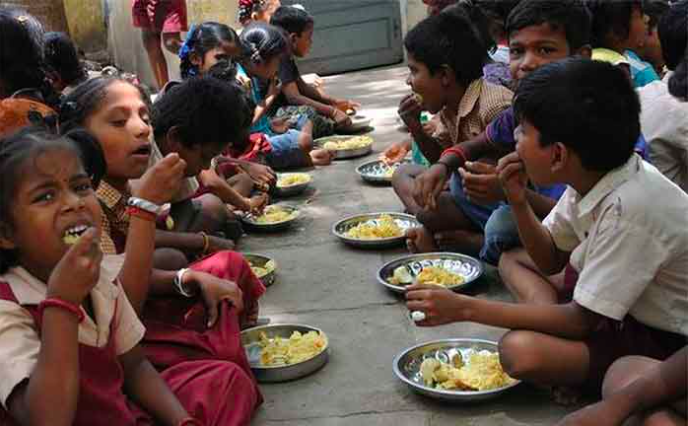
To put these numbers in context:
- Every day, almost 30,000 kids under the age of five pass away from malnutrition-related reasons.
- The hazards posed by AIDS, malaria, and tuberculosis combined are outweighed by the risks posed by hunger and malnutrition as the primary causes of death and health problems worldwide.
- Hunger and malnutrition affect vulnerable areas disproportionately, such as Sub-Saharan Africa and South Asia.
The Core Theme: "Nourishing the World"
1. Sustainable Agriculture:
Sustainable farming methods involve supporting local economies, the environment, and long-term food security. Crop rotation, organic farming, and prudent water use are some of these techniques. The Food and Agriculture Organization (FAO) of the United Nations estimates that smallholder farmers manage almost 80% of the world’s farmland, and that they are essential to the adoption of sustainable agricultural techniques. Giving these farmers access to information, tools, and financial assistance could result in more resilient and environmentally friendly food production.
2. Reducing food waste:
Food waste is a major problem worldwide. Every year, 1.3 billion tons, or almost one-third of all food produced for human use, is wasted. We can quickly relieve the strain on our food systems and reduce the negative effects of food production on the environment by eliminating food waste. The solution to this problem lies in innovations in food distribution, preservation, and consumer education.
3. Climate-resilient Agriculture:
Global food security is being threatened by climate change. Droughts and floods, two examples of extreme weather, cause supply systems and food production to be disrupted. Even in the face of climate-related difficulties, adopting climate-resilient agricultural methods, such as drought-resistant crop types and enhanced water management, can help guarantee a consistent food supply.
World Food Day Events and Initiatives
Food Drives and Fundraisers:
To aid those in need, communities and organizations all over the world organize food drives and fundraisers. These initiatives help feed the needy right away and serve as a reminder of the strength of group effort.
Educational Programs:
The foundation of World Food Day is education. These programs seek to educate the public on problems related to nutrition, sustainable agriculture, and food security. The first step toward change is knowledge, and education equips people with the information they need to make wise decisions.
Workshops on Sustainable Agriculture:
It is essential to provide smallholder and large-scale farmers with the information and skills necessary to minimize environmental impact while maximizing food production.
Educational Programs:
The foundation of World Food Day is education. These programs seek to educate the public on problems related to nutrition, sustainable agriculture, and food security. The first step toward change is knowledge, and education equips people with the information they need to make wise decisions.
The Road Ahead: Transforming Food Systems
- Investing in Smallholder Farmers: Smallholder farmers, who make up a substantial component of the agricultural labor force worldwide, frequently do not have access to basic resources like land, credit, and technical support. Giving these farmers the equipment they require can raise food output and improve their standard of living.
- Encouragement of Sustainable Practices: Organic farming, agroforestry, and precision agriculture are examples of sustainable agricultural techniques that can lessen the environmental effect of food production. These activities must be encouraged and supported by organizations and governments.
- Reduce food waste: Action must be taken at every stage of the supply chain, from production and distribution to consumption, to reduce food waste. By making thoughtful decisions and reducing waste in their own homes, consumers can contribute significantly.
- Supporting Agriculture that is Climate-Resilient: For the purpose of guaranteeing food security in a changing environment, climate-resilient agriculture is crucial. It is crucial to do research and invest in agricultural varieties and technology that can resist extreme weather.
Joining the Cause: What You Can Do
Support Local Agriculture:
By purchasing locally grown and produced food can reduce the environmental impact of transportation and support local farmers and communities.
Reduce Food Wastages:
Plan meals properly before cooking, store food properly, and be mindful of portion sizes to reduce food waste in your household.
Advocate for Change:
Raise your voice in support of policies and initiatives that promote sustainable agriculture, reduce food waste, and address food security issues. Your advocacy can help shape government and corporate actions.
Educate Yourself and Others:
Stay informed about food-related issues and share your knowledge with friends and family. Education is a powerful tool for change.
Conclusion
As we celebrate World Food Day 2023, we must recognize that our world holds the key to resolving the global food crisis. The theme “Nourishing the World” highlights the urgent need to build sustainable, equitable, and resilient food systems that can provide nourishment for all while protecting our planet. Hunger, as well as the associated challenges of climate change and inequality, can be addressed through informed, collective action.
In a world where we have the knowledge and resources to eliminate hunger, we must commit ourselves to transformative changes. By fostering sustainable practices, reducing food waste,
